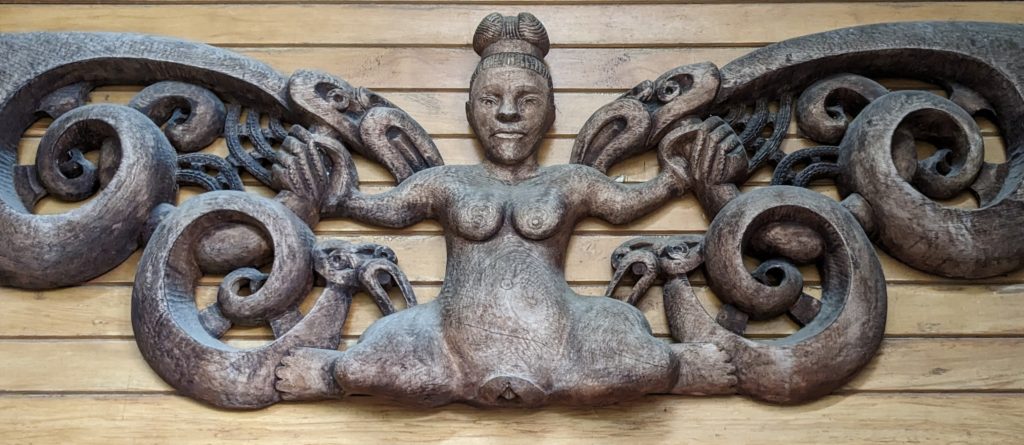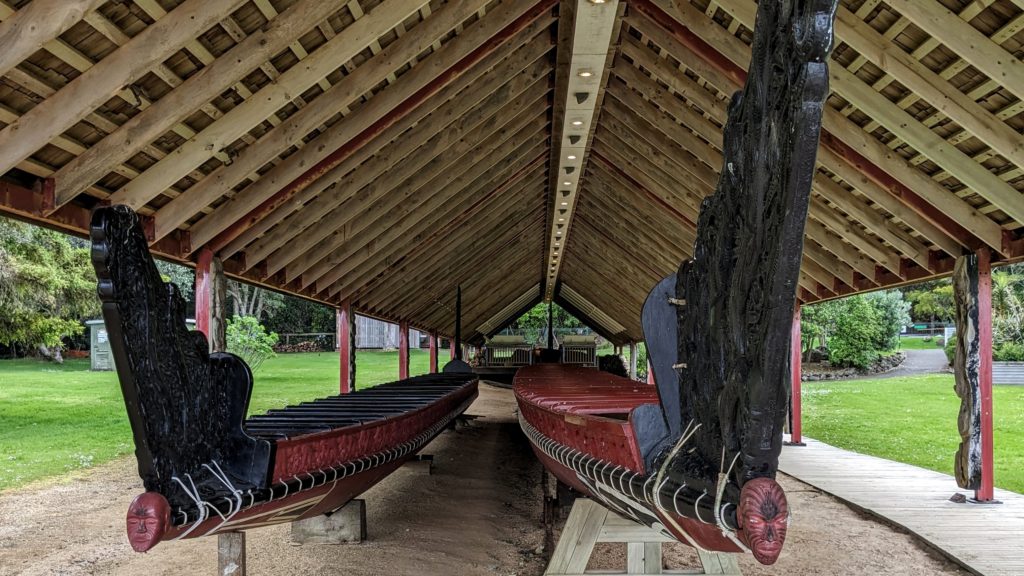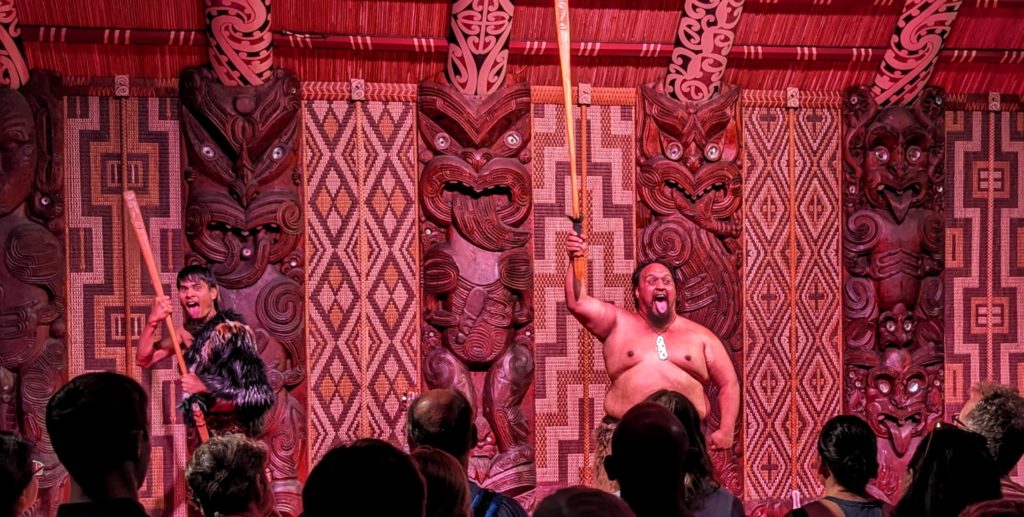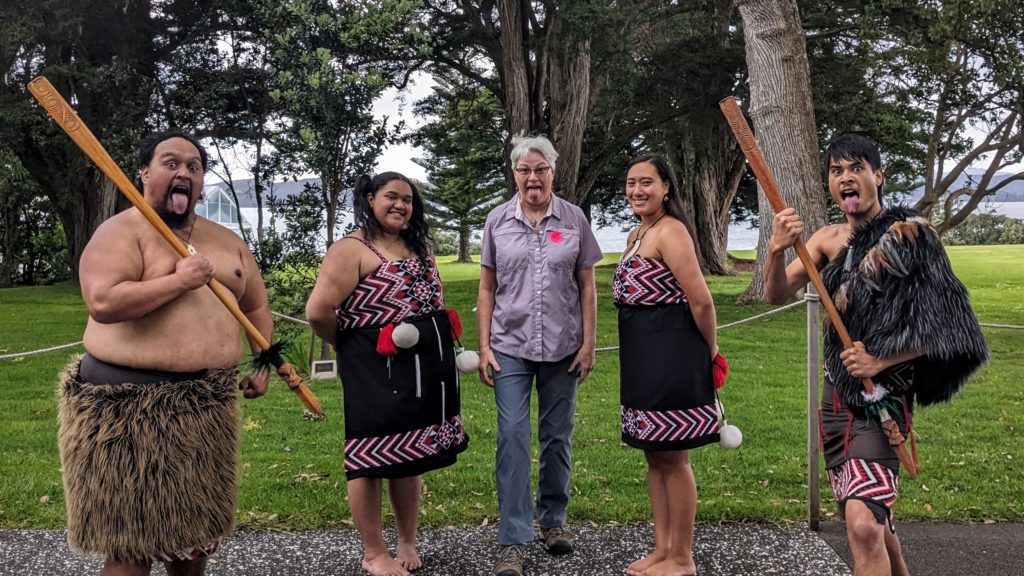October 25, 2023 Waitangi Treaty Grounds (Day 28)
I spent the day immersed in the cultural history of the formation of Aotearoa New Zealand as a nation at the Waitangi Treaty Grounds just across the Waitangi river inlet from Paihia. What a fascinating history! I joined a tour group and learned so much, then had to go back to take pictures to remember it all! We started with the reason Aotearoa New Zealand became a nation; in order for Maori to trade further afield (mostly with Australia, which was a British colony at the time) they had to have a flag, otherwise their New Zealand built ships would not be recognized, and would be treated as pirates. They wanted more options than to trade only with the ships that came to their shores, mostly British, American and French whalers, sealers and lumber traders. The many tribes or iwi (and sub-tribes hapu) never considered themselves one nation before European contact, and didn’t for many generations thereafter. We moved into another area of the grounds through a doorway, and under the ‘protection’ of Aokapurangi by “passing between her legs”. What a great interpretation of protection!

The carving over the doorway we entered.

The explanation!
We continued the tour with a description and explanation of the waka, Maori word for canoe, and the ceremonial ‘Ngatokimatawhaorua’, the waka carved from 1937 to 1940 to commemorate the 100 year anniversary of the signing of the Waitanga treaty on Feb. 6, 1840. It is made from 3 giant kauri trees using traditional methods. It is only used once a year, Feb. 5 or 6, Waitangi Days, a national holiday.

The larger waka on the right is Nagtokimatawhaorua. The first woman to ever be allowed to ride in it was Princess Diana in 1983.

The prows are elaborately carved, as are the gunnels.
We moved on to the Maori Meeting House ‘Te Whare Runanga’ where we participated in a welcome ceremony ritual and after entering, a cultural presentation of dance, song and weapon demonstraion!

A portion of the Haka.

Of course I had to get in on the action!
I spent hours reading all about the treaty history, enjoyed walking the grounds and learning more about the natural history and relaxing in the intermittent sunshine. I finished by going through the ‘Price of Citizenship’ gallery, about the many wars that the Maori have joined as allies of the British, hoping that their commitment and sacrifice would afford them an equal experience of citizenship with the Pakeha (basically the white ‘outsider’ New Zealanders).

This beautiful kauri gum block is at the exit of the gallery and is testament to the resiliency of the Maori as full citizens of Aotearoa New Zealand!

October 26th, 2023 at 1:12 pm
Ah, yes: imagine if women ruled the world! And how symbolic in so many ways of passing between her legs. I’m so glad you got to see a cultural presentation including dance and song. I have always been fascinated by New Zealand dance and music. Did they explain about the tongues? I don’t see it in other cultures. I imagine it was to make them look fiercer and bigger, like when confronting a bear? And the gum block looks like amber: did ancient insects get fossilized in it?
Cheers!
October 27th, 2023 at 6:32 pm
Even the roof over the wakas shows careful craftsmanship.
October 28th, 2023 at 2:42 pm
And the building has it’s own name too; Te Korowai o Maikuku.